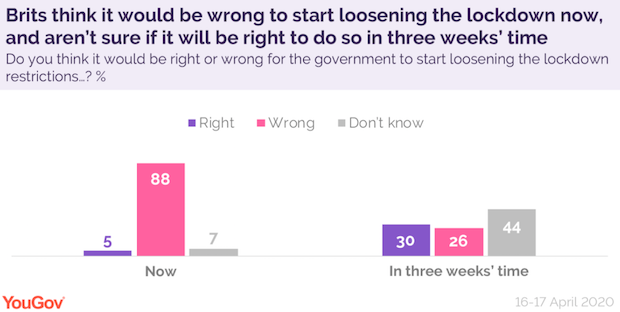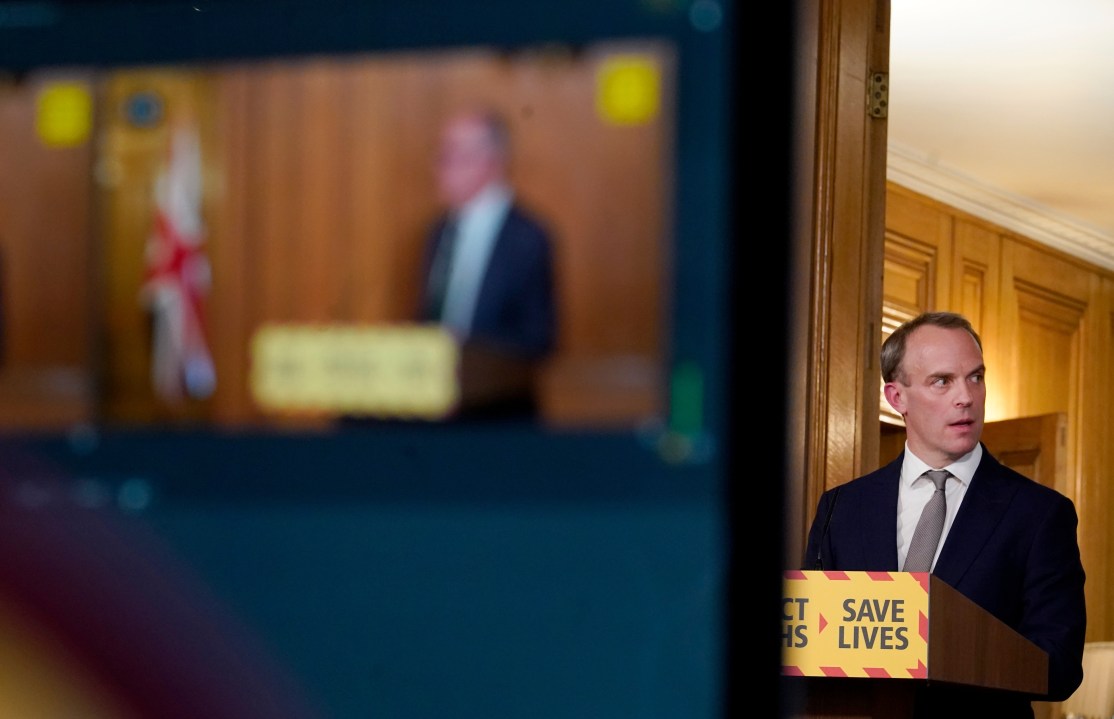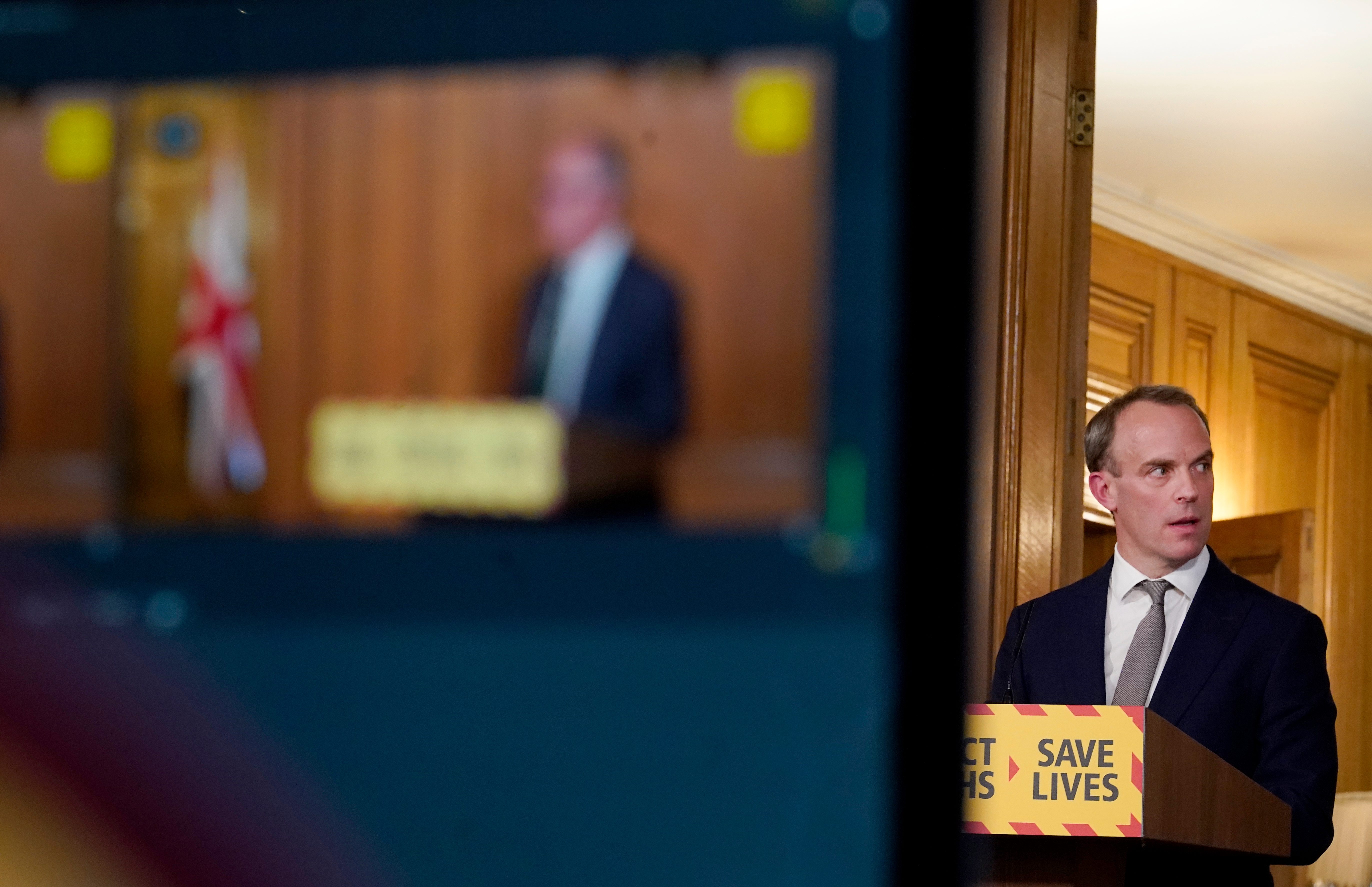In the weeks leading up to Boris Johnson announcing lockdown measures, ministers and aides wondered how in the world you could enforce a lockdown like the one seen in authoritarian China in a liberal democracy such as the UK. But following Dominic Raab confirmation on Thursday that there will be another three weeks of lockdown, public resistance is the least of ministers’ concerns.
The biggest surprise about the lockdown within government has been the level of public support for it. Polling has repeatedly shown that rather than fighting the social distancing measures, Britons are embracing them more obediently than anyone in might have dared imagine. A YouGov poll prior to Raab’s announcement found 91 per cent of Brits support extending restrictions for a further three weeks and 67 per cent say they strongly support it. A Kekst CNC survey suggests that Britons are among the most supportive of lockdown measures, with 74 per cent saying they are happy to prioritise limits on personal movement even if it means costs to the economy – compared to 61 per cent in the US – and 54 per cent in Germany and Sweden. According to new YouGov polling, the public is currently holding judgment on whether the lockdown ought to be eased in three weeks’ time when the first extension passes.

‘We can tell people they’re allowed to go outside but if they don’t think it’s safe they can just ignore it’
The lack of public outcry over social distancing is making it easier for ministers to bat away questions over an eventual exit strategy. Health Secretary Matt Hancock has said any such discussion is premature as it could distract from the social distancing measure themselves. While Raab went a little further on Thursday by setting out five tests that must be met for any lockdown easing to occur, the latter two points – adequate PPE and testing and no risk of a second peak – are vague enough that they don’t offer much clarity on when the principles can be described as met.
Part of the reluctance to have a serious discussion about it – as both Keir Starmer and now Nicola Sturgeon have pushed for – is down to Boris Johnson’s absence. Such a big decision – which will have winners and losers no matter which path is taken – is seen as something only a prime minister can take. But behind the scenes, preliminary conversations have begun in government. While the Treasury has started discussions with the Department for Health on different models for easing the lockdown, several departments are coming up with their own ideas. With no Prime Minister in Downing Street, there is a heavy reliance on scientific advice. However, as one senior government figure says, this can only take the government so far: ‘Behavioural scientists will tell you one thing, epidemiologists another – but in the end it has to be a political decision’.
But the current support for lockdown means that a key part of any easing will actually be selling it to the public. As one aide puts it: ‘We can tell people they’re allowed to go outside but if they don’t think it’s safe they can just ignore it.’ There are cabinet ministers who wish for the lockdown easing to begin in three weeks but think there is little point pushing too hard if public opinion is so against it.
Public opinion could change quickly. In the coming weeks, expect more evidence of the general cost to public health of the lockdown – from those not seeking NHS treatment for other illnesses to an expected rise in domestic abuse. The economic hit could also start to be seriously felt. Either way, expect a focus on what can be done to reassure the public when the government eventually says it’s time to get back outside in some form.
Up until now, the government has been reluctant to advise the use of face masks, in part because it could lead to a consumer demand which would make it harder for health staff to get the PPE they need. Given that step four of Raab’s five point plan involves adequate supplies, face masks could eventually be deployed among the public to ease concerns over public transport.
Key to any lockdown easing is Johnson. Not just because he is the ultimate decision maker. He’s also the party’s most valued communicator. ‘No one else in the party has anywhere near his cut-through,’ says one member of the government. Johnson’s own experience with coronavirus means that he ought to have an increased level of trust with the public on the issue.








Comments